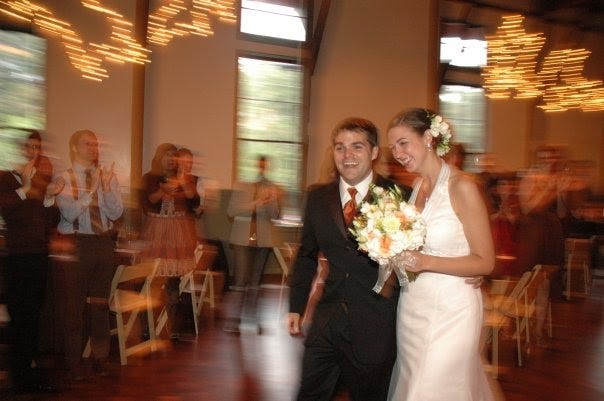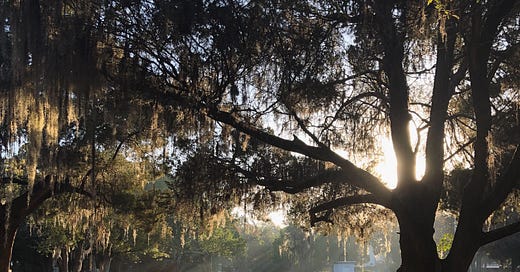Last week, the United States hit a grim milestone: 200,000 lives lost to COVID-19.
I’ve never been much of a numbers person. While I appreciate the effort to break down a large number like 200,000 into smaller, more easily imaginable amounts—the equivalent of 1,450 commercial plane loads of people, or the population of Salt Lake City, for example—it’s still hard to wrap my head around such a massive death toll.
What I do understand, though, is that one death doesn’t affect just one life. There is always a ripple effect. I know that those 200,000 deaths have left many, many, many more lives shattered, too.
It’s hard to comprehend the lasting impact of grief until you’ve experienced it firsthand. Some might assume that after a funeral has been held, life goes back to normal. Others believe that, by not talking about the loss, things are easier for the bereaved. Many think that grieving people should be able to “move on” after a certain amount of time.
But once you know the reality of losing someone incredibly close to you, you quickly discover that there’s no moving on. There is only moving forward—with grief by your side. Whereas the person you lost was once your lifetime companion, you must now learn how to forever walk with grief.

Sunday would have been my 12th wedding anniversary with Jamie. I’m not sure how we would have decided to celebrate our anniversary this year. We may have masked up and enjoyed a fancy outdoor dinner. We might have rented a nearby Airbnb and got away for a few days. Or perhaps we’d simply stay at home, reflecting on a weird year, and looking forward to hopefully less weird years to come. As silly as it may seem, I’m mad that a pandemic-impacted anniversary is something we never got to experience.
This is the fourth wedding anniversary I’ve lived through without Jamie. These days, I’m in another happy relationship, and I’m just weeks away from giving birth. I am incredibly fortunate and marvel at that fortune all the time.
No amount of fortune, however, changes the fact that I’m still heartbroken over losing Jamie. I always will be. Although the pain is less intense than in previous years, it still exists. Grief never goes away.
Since COVID-19 began sweeping through the country early this year, grief has been heavy on my mind. As news outlets and medical experts began death tolls and case counts, I kept thinking about the people who weren’t being counted—the spouses who lost partners, the children who lost parents, and those who were tasked with caring for a very sick person in a very scary situation. When you consider that ripple effect, it’s impossible to track the full toll of the novel coronavirus.
Nothing makes my blood boil more than when I see people reduce deaths to statistics for the sake of making a point. The internet is riddled lately with armchair experts making the case that 200,000 deaths—a small percentage of the overall number of infected people—isn’t something to be concerned with. Just look at how many people die from heart disease or car crashes! We’re overreacting, they say; in the grand scheme of things, that number is insignificant.
These arguments can be rattling, especially when you come across them in the midst of a distracted, mindless social media scroll. They can make you pause and wonder: Is 200,000 a lot or a little?
When you’ve lost someone who’s part of that 200,000, there’s no debate.

Jamie died from an undiagnosed condition called fibromuscular dysplasia, or FMD. It’s a rare condition—one that affects fewer than 200,000 people in the U.S. per year.
You could argue that FMD affects “virtually nobody,” as President Trump said in regards to COVID. In a country with more than 328 million residents, 200,000 people is a relatively small contingent. But I know otherwise. Diseases like COVID, FMD, and countless others, no matter how rare or common they might be, affect somebody—and those somebodies mean a whole lot to other somebodies.
For me, September 27 will always be a somber day. No matter how much time passes or how much my life changes, I will always keep track of what number wedding anniversary it should have been. It’s just one small example of how I now coexist with grief.
I carry scars with me for life. Whenever I see or hear an ambulance, I am flooded with awful memories. Whenever I visit a hospital, just like I will be doing any day now to give birth, I remember holding Jamie’s lifeless hand, praying that the worst hadn’t happened. Whenever I hear a full-throated laugh, watch a funny movie, or drink an especially good stout, I think of Jamie.
And then there are the times I can’t predict. Sometimes, I am hit with a surprise wave of grief that brings me to my knees. It’s been three and a half years since Jamie died, and I still can’t fully comprehend the fact that my healthy, happy, wonderful husband could wake up one morning to run a race and die just hours later.
It’s worth noting that I’m hardly the only one to be affected by Jamie’s death. His parents carry deep amounts of grief and sorrow. His best friends cycle between funny memories and sad regrets. His niece and nephew reach new milestones and wonder how their uncle would react. His Little Brother is left without a mentor. His coworkers honor him year after year on the anniversary of his death, serving his favorite combination of pancakes and pour over coffee.
Every 1.5 minutes, someone else dies in the U.S. from COVID-19. Those people, like Jamie, each leave behind a massive wake. It’s terribly callous to reduce their deaths to nothing more than statistics and talking points—especially in an effort to win an argument or gain political points.
I know what it’s like to grieve, but I don’t know what it’s like to lose someone to COVID. I don’t know the pain of being bombarded with constant reminders of the virus. I’ve never had to attend a funeral through a video call or experience a loss that’s at the center of a national crisis. I don’t know the full extent of that sorrow; I can only imagine how incredibly hard it is.
If you’re part of that terrible club, I’m so sorry. You have your own scars that only you will know. I hope you understand that you and your loved ones are not “virtually nobody.” You are somebody, they were somebodies, and your grief—as unbearable as it may seem—is beautiful proof of that.
xoxo,
KHG
My Sweet Dumb Brain is written by Katie Hawkins-Gaar. It’s edited by Rebecca Coates, who just sent a large batch of handwritten postcards to her fellow Georgia voters, urging them to finalize their voting plans.
Want to support this newsletter? You can subscribe, share this post on social media, or hit that heart button at the top or bottom of this post. It all helps!





Your essay is beautiful. And the answer to the title question has to be that 200.000 is a lot. It is too much. One is too much. Death from any cause should never be considered trivial.
Preventable death is a lot. Whether it is 2 or 200,000. With decent leadership and a belief in basic science, it would have been a lot less than 200,000. So it is a lot.